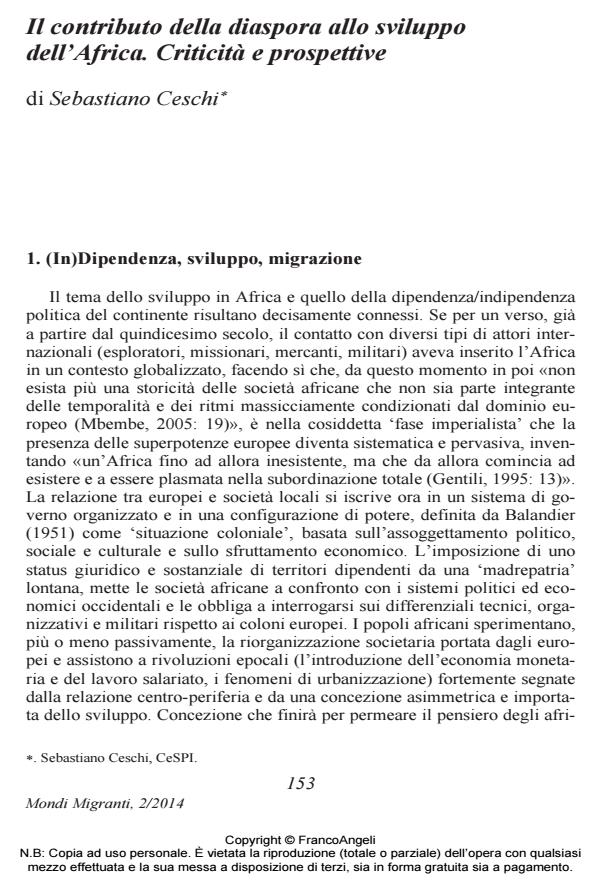Diaspora Contribution to African Development. Critical perspectives
Journal title MONDI MIGRANTI
Author/s Sebastiano Ceschi
Publishing Year 2014 Issue 2014/2
Language Italian Pages 15 P. 153-167 File size 58 KB
DOI 10.3280/MM2014-002008
DOI is like a bar code for intellectual property: to have more infomation
click here
Below, you can see the article first page
If you want to buy this article in PDF format, you can do it, following the instructions to buy download credits

FrancoAngeli is member of Publishers International Linking Association, Inc (PILA), a not-for-profit association which run the CrossRef service enabling links to and from online scholarly content.
The development question has entered African history with the colonization process and has assumed new declinations during the decolonization and the independence period, overlapping with migration and diaspora issues. In recent years African diaspora is considered a central actor for the development of the source countries and for the whole continent. The article proposes a critical review of different forms of migrants’ transnational contribution to the improvement of African contexts and shares some final considerations around the future of this international actor in the cooperation and globalization processes.
Keywords: Migration, Transnazionalism, Diaspora, Development, Africa.
Sebastiano Ceschi, Il contributo della diaspora allo sviluppo dell’Africa. Criticità e prospettive in "MONDI MIGRANTI" 2/2014, pp 153-167, DOI: 10.3280/MM2014-002008